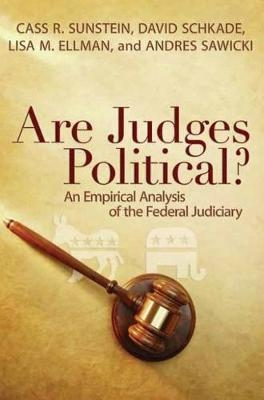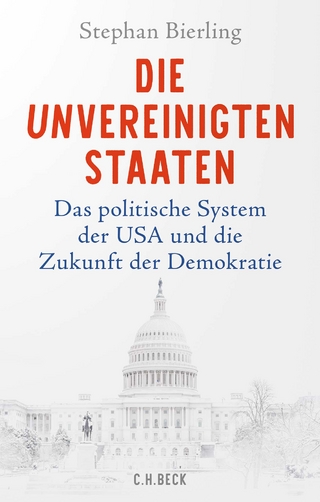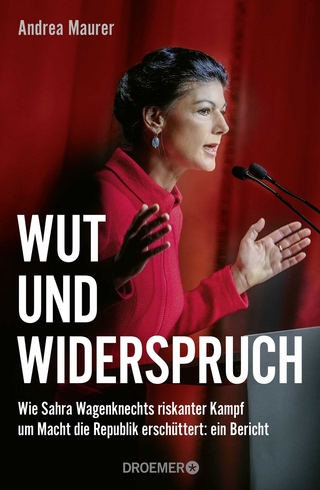
Are Judges Political?
Brookings Institution (Verlag)
978-0-8157-8234-6 (ISBN)
- Titel ist leider vergriffen;
keine Neuauflage - Artikel merken
Over the past two decades, the United States has seen an intense debate about the composition of the federal judiciary. Are judges "activists"? Should they stop "legislating from the bench"? Are they abusing their authority? Or are they protecting fundamental rights, in a way that is indispensable in a free society? Are Judges Political? cuts through the noise by looking at what judges actually do. Drawing on a unique data set consisting of thousands of judicial votes, Cass Sunstein and his colleagues analyze the influence of ideology on judicial voting, principally in the courts of appeal. They focus on two questions: Do judges appointed by Republican Presidents vote differently from Democratic appointees in ideologically contested cases? And do judges vote differently depending on the ideological leanings of the other judges hearing the same case? After examining votes on a broad range of issues--including abortion, affirmative action, and capital punishment--the authors do more than just confirm that Democratic and Republican appointees often vote in different ways.
They inject precision into an all-too-often impressionistic debate by quantifying this effect and analyzing the conditions under which it holds. This approach sometimes generates surprising results: under certain conditions, for example, Democrat-appointed judges turn out to have more conservative voting patterns than Republican appointees. As a general rule, ideology should not and does not affect legal judgments. Frequently, the law is clear and judges simply implement it, whatever their political commitments. But what happens when the law is unclear? Are Judges Political? addresses this vital question.
Cass R. Sunstein is the Karl N. Llewellyn Distinguished Service Professor of Jurisprudence and a professor of political science at the University of Chicago, USA. Among his many books are Radicals in Robes: Why Extreme Right-Wing Courts Are Wrong for Americans (Basic Books, 2005) and Why Societies Need Dissent (Harvard University Press, 2005). David Schkade is the Jerome Katzin Professor in the Rady School of Management at the University of California San Diego, USA, and a coauthor of Punitive Damages: How Juries Decide (University of Chicago Press, 2003). Lisa M. Ellman holds a law degree and a master's degree in public policy from the University of Chicago, USA, and is an Associate at Mayer, Brown, Rowe & Maw LLP in Washington, D.C. Andres Sawicki, a graduate of the University of Chicago Law School, is currently clerking for the Honorable Robert D. Sack of the U.S. Court of Appeals for the Second Circuit.
| Erscheint lt. Verlag | 30.6.2006 |
|---|---|
| Sprache | englisch |
| Themenwelt | Recht / Steuern ► Allgemeines / Lexika |
| Recht / Steuern ► EU / Internationales Recht | |
| Sozialwissenschaften ► Politik / Verwaltung ► Politische Systeme | |
| Sozialwissenschaften ► Politik / Verwaltung ► Staat / Verwaltung | |
| ISBN-10 | 0-8157-8234-9 / 0815782349 |
| ISBN-13 | 978-0-8157-8234-6 / 9780815782346 |
| Zustand | Neuware |
| Informationen gemäß Produktsicherheitsverordnung (GPSR) | |
| Haben Sie eine Frage zum Produkt? |
aus dem Bereich


